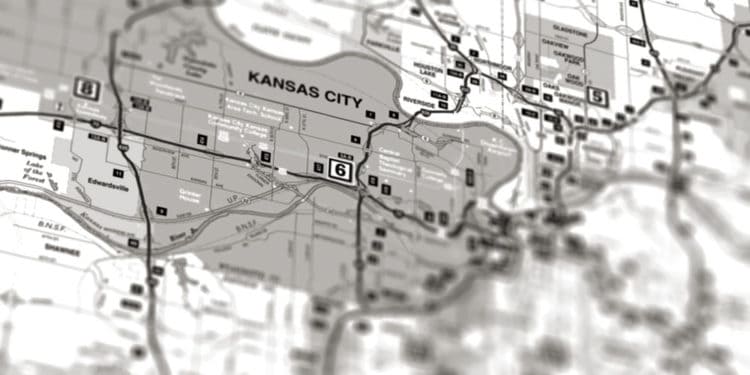A recent agreement by the governments of Missouri and Kansas to end their economic development border war was cheered across the country, including in this recent piece in The Hill. Specifically, the two states agreed no longer to use economic development subsidies to lure employers back and forth across state line — at least in the Kansas City metro area. And while the precedent is welcome, there was always reason to be skeptical. Now there are signs of its collapse.
The Kansas City region is unlike many in the United States in that the metropolitan area is divided almost exactly in half by the state line. The older and more urban part of the region, Kansas City, sits in Missouri. The newer and more suburban post-war developments rest in Kansas. So the traditional urban-suburban economic wars seen across the country have an additional component: State interests. According to the Hall Family Foundation, the two states spent $335 million in the past decade trading employers only to see Kansas win a slight 1,200 net gain of jobs.
While the state action is welcome, the truce deal does not include all the various localities on either side of the state border. Cities may continue to offer incentives or other financial packages to lure existing businesses into their domain. While Kansas City, Missouri, has pledged to honor the agreement, smaller suburban communities on the Kansas side have not. As demonstrated by the USDA’s recent announcement that it has chosen a site on the Missouri side to relocate some of its workforce, the two states will continue to fight an expensive war to bring jobs from afar. The Kansas City Area Development Council – a private non-profit that seeks to attract jobs to the region – still operates as a double-dealing promoter in the regional jobs Fight Club, collecting dues from both sides of state line and then repeatedly pitting them against each other.
Many of the individuals and organizations who profited handsomely from the years of combat have come out in favor of the deal. Sort of. The CEO of the Greater Kansas City Chamber of Commerce – a chamber whose portfolio includes both sides of the state line – recently told a local radio host, “I think it forms a new way to think about how we’re going to grow Kansas City where we really are looking to grow it in a net new way, not just moving companies from one side of the city to the other.”
But moving companies and jobs from one side of the city to the other is exactly the economic development policy the Chamber has championed in the past and will likely champion in the future (e.g. a downtown baseball stadium for the Kansas City Royals).
Part of the problem seems to be that the folks who run such economic development programs use questionable data to proclaim job growth and presumably justify their own budgets.
For example, Waddell & Reed, a financial services firm originally located in Missouri that crossed the state line years ago in exchange for such incentives, started its incentives negotiations to return to Missouri just before the Border War truce was announced. In exchange for $62 million in Missouri incentives, it will move 1,000 jobs from Kansas. A spokeswoman for the Missouri Department of Economic Development heralded the move as good for the region, apparently unaware that the jobs were already well within the region. One can be confident they will claim those jobs as new in their reporting documents.
Perhaps most notable is that the truce lacks precise language to describe exactly what it is prohibiting. Kansas Governor Laura Kelly’s executive order seems to restrict incentives to projects that create “net new” jobs. But that term is not defined. Could a growing Missouri firm already planning to make a few new hires take that plan to Kansas and seek incentives — using those “net new jobs” as leverage? How will Kansas assess whether those “net new jobs” were due to the incentives themselves?
Knowing the degree to which job creation or private investment is due to incentives has been a point of contention all along.
Policymakers and developers point to all the new property development as proof of efficacy. But the vast majority of the economic research literature indicates that such development likely would have happened anyway, and that the return on investment of public dollars is small if anything at all. Private companies have learned how to game the system through a combination of over-promising, threats of retaliation and fanciful accounting.
The city of Kansas City, Missouri, is now offering Waddell & Reed another $40 in local tax breaks. Kansas Gov. Kelly told The Kansas City Star, “My executive order limiting the use of state incentives was premised in part on Missouri local units of government bringing their property tax incentives to a level playing field with Kansas. Without that action, a true ceasefire cannot occur.”
It is heartening to learn that other regions may be examining the Missouri-Kansas deal to see if it might work for them; the goals are laudable. But if policymakers are serious about ending these types of economic development incentive wars, all levels of government in the region need to be a party to it and the terms must be precisely defined.
The allure of ribbon cuttings and claiming to be job creators is too great to leave to vague promises. The Border War truce in Kansas City may be a lesson on both how and how not to proceed.









Beyond the spectacle, Kansas City prepares for World Cup reality